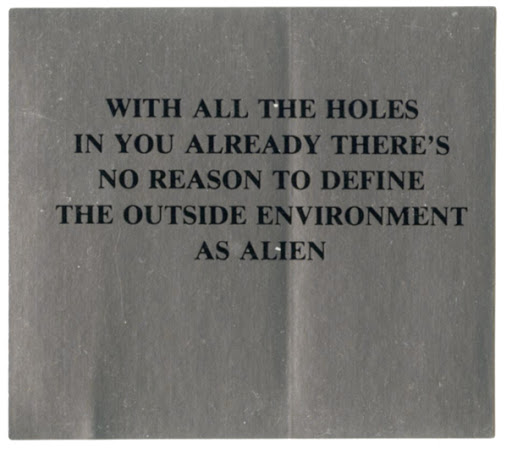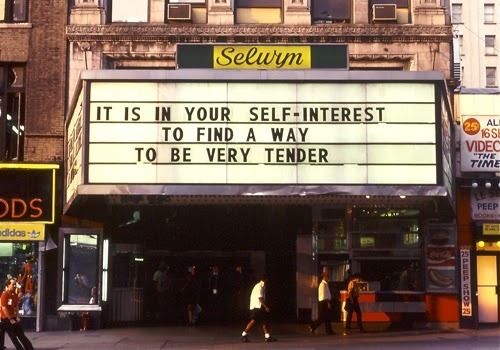We all felt a pang of the immediacy and excitement of youth when lockdown came around, in those first days when it seemed like everything was closing. The sweet thrill of departure and ending; of leaving the normal drudge, mixed up with all the anxieties of the unknowable and unprecedented. So many last days at school, as it were, collided at once.
Out of those end days, when it felt like people might be saying goodbye forever, and indeed some were, all of us could consider again what that glorious age of 17 might have been like without new connection, without touch, and in which all of those moments of novelty and earnest possibility, for better or worse, were now cancelled.
None of this can be tabulated or traded-off. The COVID experience is many things, mundane and profound: but is also destined to be so many summers that you didn’t quite get to be young in, and were thus not quite bliss, let alone very heaven.
The experience of youth involves coming into a world that was not shaped for you, and realising that many people who should have accrued enough maturity to do otherwise still want to make it about themselves. The world of the 17 year old is therefore both marginal and universal — weighty influence is everywhere — but there is still the thrill of possibility and newly revealed difference in all its glory.
You don’t get to grow up in the world you imagined: and that, at least, is one home truth that cuts across the great generational divides of our times.
The younger cohorts don’t demand much, it seems. Certainly not the revolutionary impossible of ’68. Instead, they want a reheated social democracy that, though lying almost cold and dead as a way of living, is still palpably alive in memory and unfolding consequence. They want, I suppose, to live a life like that lived in the mid-1990s — they want cheap housing and debt-free education, but with WiFi too.
But, COVID aside, we’re coming to the end of an era when the concept of living standards could define political imagination: in which left or right would compete to offer a better route to higher gains for a greater number. With that goal in mind, there was once a deep notion of a social contract, a deal, a promise. Looking at the bin fire of so many contemporary reactionary movements, it seems likely that all that can be promised by mainstream politics now is a loop of disruption and ever more hollow victory. Where trust seems impossible, the cruel strongman or the zero-sum deal maker, can seem like a safer bet.
Yet we were still brought up to expect that, at certain key moments, generational deals are bound to be made. Some think COVID is one such moment — rich with the potential for change and overturning old ways. It’s not impossible, but the deal remains so elusive, even at this seminal moment, because the twin trade-offs of ’45 and ’79 continue to exert their weight.
In the intervening years, Europe and North America have become far less central to the global economy. But that sense of being young and marginal, a little late to the party, is also about the inescapable knowledge that the scale of ecological recovery required to maintain a liveable planet has called time on the politics of growth and accumulation.
We know we are doing it wrong, but still traipse out to buy imported consumer goods as an act of national salvation — more stuff will set you free and save the economy. The cause of the virus is also the saviour from the consequences: a kind of ideological boosterism that would make Pravda’s editors blush.
Tom Paine once described the ancien regime as a tyranny of the dead. Under capitalist modernity, that tyranny becomes particularly literal in our time: our atmosphere is still clogged with the great effusions of the first industrial revolution 200 years ago (although, worryingly, a majority of total emissions are in fact the product of the era of global hyper-consumption that began in the 1980s).
Implicit within the rise of the capitalist system that now girds the globe was this difficult, hidden, compact — that the future would run out of road, that resources and new frontiers would one day be depleted, that the dead ancient stuff that powered it all from underneath the ground would choke off the basis for renewal.
Movement, with so much ease and lightness, was posited as the salve to all this dead weight. Travel has since become the great status and privilege activity of our time. Even the children of middling sorts could swap Bali for Barcelona at a whim, and probably find a geo-located date within minutes of arrival. In calling a halt to that, even for a brief flash, something has changed.
At the very least, COVID has demonstrated to the young that the conciliation prizes they were awarded in place of a generational deal could be snatched away at a moment’s notice. Movement and novelty; experience and connection; have a lot more to be said for them in their own right than the drab old world of predestined apprenticeships, gender roles and stifling obligations. But the prize of a planet for a playground was always absurdly ephemeral.

I spent most of lockdown looking out across the street at an empty boutique hotel. The cheap tourists hostels nearby stayed open weeks into the wave of shutdowns — initially, their inhabitants simply had nowhere else to go.
It brought to mind sepia photos of the doss houses that catered to army service personnel during the last big pandemic at the end of the first war. Mostly young, mostly single, squaddies squeezing out of windows, still smiling and garrulous: the delights of any form of leave enough, you suppose, to feel like bliss.
Today, in even the richest places, the world of cheap, cramped, beds is the lot of millions still. If you could zoom out and observe with detachment humans move around since the advent of capitalism in the space of a few minutes, you’d observe ever greater concentrations of people in ever smaller spaces.
Throughout its history, the global economy has been organised around the modus operandi of confining large numbers and moving them around: that insatiable thirst for cheap inputs, is one of the basic premises on which it works. Looked at through the lens of lived experience, it is a great shovel: loading people into steerage, shanty towns, budget aircraft, sweatshops, queues, slums.
It was the profit motive that moved asylum seekers in Glasgow into hotel rooms and conditions of grinding, deadly, proximity as the pandemic began to bite. But that inhumanity is not an aberration in the system – it is a model of how it functions everyday, everywhere. Life really is as cheap as a five pound daily living allowance that can be withdrawn on a whim. These, mostly young, people have travelled in ways most of us can scarcely imagine — but because they have nothing other than their bodies to bring, we pen them in stress-inducing cages, while the immaculate classes of the well-heeled and locked-down celebrate the moral virtue of their splendid isolation.
Like the caste system, the global economy still requires its own Brahmins and Untouchables. Somewhere in the gut we all know that bodily autonomy is not universal when structures force some bodies to be unclean, servile and permeable, to be touched and violated and shunted around, disposable.
And yet, touch is the most powerful act of communication — this means that there is a deep sickness in the glittering, distant, world of our men-children rulers — who could never really be reconciled to the idea that spontaneous, human contact underpins survival.

Instead, at the heart of capitalist thought is an inexhaustible reservoir of loneliness, separating the clean from the unclean, the wealthy from the dispossessed.
This is the raw material out of which billionaires of our age have come to thrive. The evangelists of connection told us that it would just make everything better. But now that touch unhindered is a social ill – we can see new divides opening up. If we could rewind back to Zuckerberg’s dorm, we’d be reminded that these people thrive on the mantra of connection precisely because they are so isolated. This is why the doctrine of the ‘sovereign individual’ is also favoured by the same class. The surge in popularity of private yachts, private jets, and private islands wasn’t decadence — it was strategy.
A line from American conceptual artist Jenny Holzer’s Survival series reads, “Let Your Hand Wander on Flesh to Make Possibility Multiply.” So now, possibility and the bliss of it can be made literally and figuratively deadly. In its place, we have the new mantra of connection. Flesh was already moving out of fashion in favour of the curated instagram feed. But images are not alive to any touch and they have become, in turn, a weighty and difficult set of social obligations for the young — the need to be seen to be beautiful at that age is perhaps as crushing as any other novel morbidity.
We could suggest instead that their beauty is inherent, and that to be 17 again, to move around and feel the thrill of new possibility, with all its risks and wonders, is a right. More stuff, connected or otherwise, won’t change you: but one summer can.
